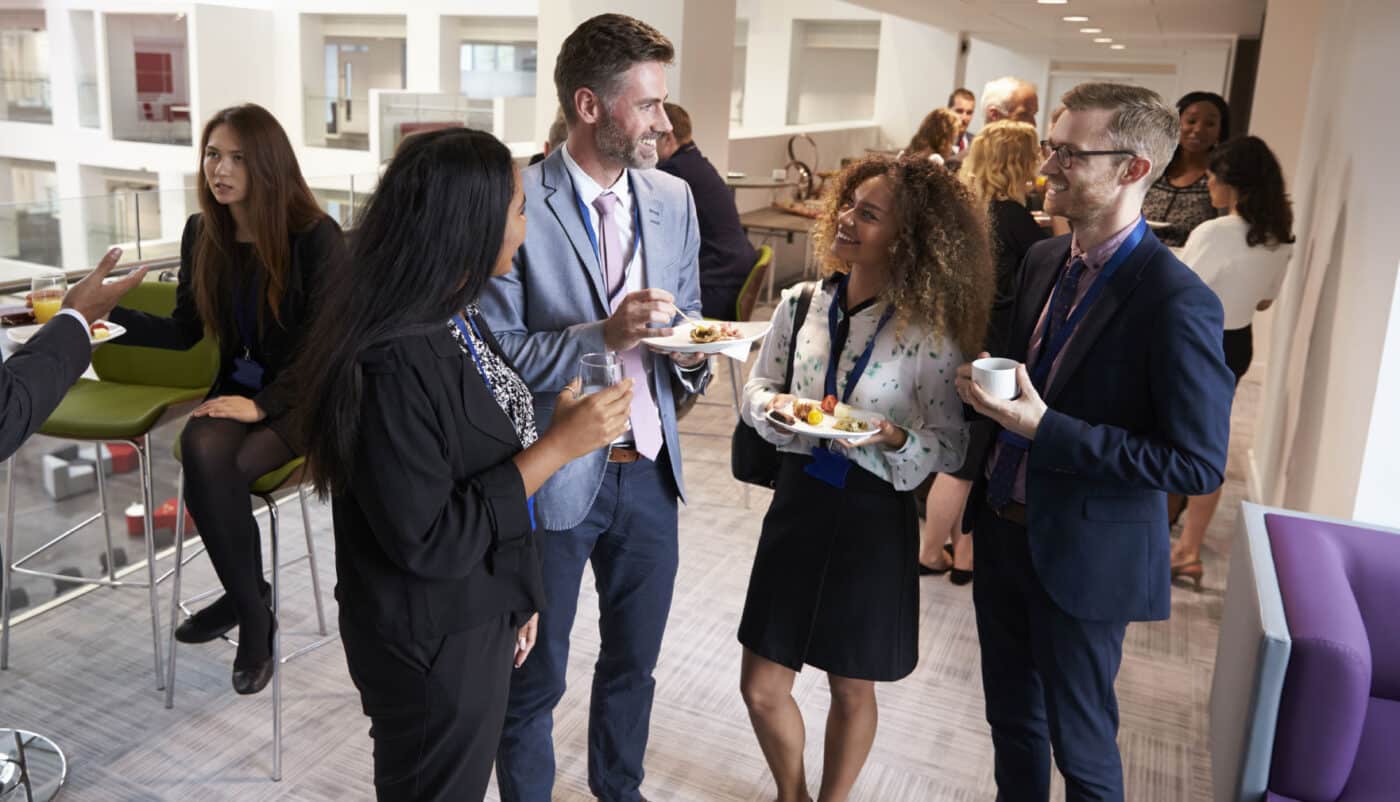High Ticket Sales in 2025: Techniques to Boost Premium Conversions
Mastering High Ticket Sales: A Guide for Small Business Owners in 2025
For small business owners, high ticket sales represent a powerful strategy for growth. They offer the opportunity to sell fewer units, generate higher revenue, and build more meaningful client relationships. However, high ticket sales are different from regular transactions—they require an approach that prioritizes trust, relationship-building and clear communication of value.
This guide will explore actionable techniques to make high ticket sales more effective in 2025. Additionally, we will walk you through crafting a high ticket sales script that helps you connect with clients and close deals. Let’s dive into how you can create high ticket offers that genuinely resonate with premium buyers.
Understanding Your High Ticket Client
A successful high ticket sales strategy begins with understanding your ideal client. Unlike regular customers, high ticket clients are looking for specific value—they seek expertise, exclusivity, and transformational results. Knowing who these clients are and what motivates them allows you to create a sales approach that feels relevant and personalized.
How to Define Your Ideal High Ticket Client
- Demographic Analysis
Go beyond basic factors like age and income. Consider interests, values, and lifestyle choices. For example, a high ticket fitness coach might target professionals who prioritize health but struggle to find the time to design complex fitness plans themselves. - Identify Key Pain Points
High-ticket clients have specific needs they want addressed. Think about what they are trying to solve and how your offering aligns with those needs. For example, an executive seeking career coaching may want to reduce stress, boost productivity, and achieve better work-life balance. - Determine Their Buyer Journey
High-ticket clients typically take more time to make decisions. Understand their buying process and what kind of information they need at each stage. At the awareness stage, they may want to understand your expertise. In the consideration stage, they’ll seek proof of results. By the decision stage, they are evaluating whether they trust you.
Example:
A boutique marketing agency offering high-ticket branding services might target tech startup founders who are looking to scale quickly and differentiate their brands in a competitive market. Understanding this ideal client informs every interaction, ensuring a highly relevant conversation from initial outreach to final proposal.
Building Immediate Value in the First Interaction
Creating an instant sense of value is crucial in high-ticket sales. Premium clients want to understand why they should consider your offering within the first few minutes. Rather than starting with features or pricing, focus on the unique impact you can provide.
Strategies to Establish Value Early
- Lead with Transformation
Focus on how your service will improve their life or business. Share examples of specific results clients have achieved, whether it’s time saved, stress reduced, or revenue increased. This helps clients immediately envision the benefits. - Use Specific Case Studies
Highlight past successes with clients similar to the prospect. For instance, if you’re a business consultant, share a client story about how your guidance led to measurable growth. - Showcase Your Unique Expertise
Don’t just list credentials. Demonstrate how your experience uniquely qualifies you to solve their problems. If you’ve worked with similar clients or in their industry, highlight insights that could benefit them.
Example in Action:
An eco-friendly interior designer might present a case study where she helped a homeowner transform their living space into a sustainable sanctuary, resulting in lower energy bills and a healthier environment. By sharing such results early, she establishes her services as a valuable investment for eco-conscious clients.
Crafting a High Ticket Sales Script That Resonates Emotionally
An effective high ticket sales script is about more than just the right words; it’s about building a relationship. High-ticket clients are looking for a personal connection and reassurance that they’re making the right choice.
Building an Engaging, Client-Centered Sales Script
- Begin with Empathy
Start by acknowledging their pain points and demonstrating that you understand their challenges. For instance, “I know how overwhelming it can be to [describe their challenge].” - Use Open-Ended Questions
Encourage the client to share their goals, struggles, and expectations. Questions like, “What does success look like for you?” or “What’s been the biggest challenge in finding a solution?” help show that you’re there to listen and support, not just to sell. - Describe Their Desired Future State
Paint a vivid picture of what their life or business could look like after working with you. Help them feel the benefits they’ll experience. - End with a Collaborative Invitation
Rather than using high pressure tactics, invite them to work together. Use phrasing like, “If this feels like a good fit for both of us, I’d love to work with you on this journey.”
Sample Script:
“I understand that finding the right solution has been a long and frustrating process for you. If you’re open to it, let’s explore what the results could look like if we work together. Many clients in your position have told me that after just a few sessions, they feel a renewed sense of clarity and purpose. My goal is to support you in achieving that same transformation.”
This approach shows empathy, connects emotionally, and positions you as a supportive partner rather than a pushy salesperson.
Creating Genuine Urgency That Resonates
In high-ticket sales, urgency should feel organic and sincere. High-ticket clients don’t respond well to pressure; instead, they are motivated by exclusivity and the unique benefits they can access by acting sooner.
Methods for Establishing Natural Urgency
- Emphasize Limited Availability
If your offer is exclusive—such as limited coaching slots or a seasonal product—share this in a way that feels informative, not forceful. For example, “I only take on five new clients each quarter to ensure personalized attention.” - Add Unique Bonuses
Offer time-sensitive bonuses that enhance the client’s experience, such as an additional coaching session or a personalized assessment. This encourages prompt decisions without feeling like a hard upsell. - Highlight Potential Delays in Progress
Show clients the cost of waiting. For instance, a financial planner might explain how starting an investment strategy now could significantly impact their retirement savings.
Example in Action:
A career coach who only accepts a limited number of clients each year emphasizes that new clients typically experience a 20% increase in their income within six months. By highlighting the limited spots and proven benefits, she creates urgency based on exclusivity and value.
Delivering a Personalized Experience Every Step of the Way
High ticket clients expect a personalized experience tailored to their needs and goals. The more bespoke your approach, the more valuable your offer appears.
Strategies for a Personalized Sales Process
- Actively Listen and Take Notes
Pay close attention to details about their goals, and refer back to these in future interactions to show that you value their unique situation. - Customize Proposals and Packages
Rather than sending a generic proposal, craft a document that directly addresses their goals, pain points, and desired outcomes. Tailor the language and include options that meet their specific needs. - Offer Support Throughout the Decision Process
High-ticket sales often require more nurturing. Reach out with follow-up emails or additional resources that show your commitment to helping them at every step.
Example in Action:
A high-end event planner specializing in destination weddings creates a customized “vision board” based on each client’s unique preferences, sharing it as part of the initial proposal. This personalized touch not only demonstrates commitment but also helps clients visualize their dream wedding, adding perceived value to the service.
Showcasing Transformation Over Features
High-ticket clients are investing in transformation, not just a product or service. Focus on how their life, business, or mindset will change as a result of working with you.
Tips to Emphasize Transformation
- Share Transformation Stories
Use specific success stories to show how clients have achieved meaningful change. Be specific about how their experience improved over time. - Use Before-and-After Scenarios
Help clients see both the emotional and practical differences before and after working with you. This paints a full picture of your service’s impact. - Encourage Them to Visualize
Ask questions like, “What would it feel like to have this challenge solved?” This helps bring the transformation to life and makes the investment feel worthwhile.
Example:
A nutritionist offering high-ticket health coaching shares a story about a client who went from feeling lethargic and unmotivated to energetic, confident, and excited about life. By sharing the journey and outcome, the nutritionist helps prospective clients envision their own transformation.
Following Up Thoughtfully to Reinforce Value
Effective follow-up is key in high-ticket sales, especially since these clients often take more time to decide. A thoughtful follow-up strategy shows your commitment to their success and keeps your offer top of mind.
Follow-Up Strategies to Keep Engagement High
- Send Recap Emails
After your initial meeting, send a recap email outlining key points discussed and reiterating the potential outcomes. - Provide Additional Resources
If clients express concerns, send relevant resources like case studies, testimonials, or articles that address their specific questions. - Offer to Address Questions in a Follow-Up Call
Let clients know you’re available to answer any additional questions. A well-timed follow-up call or email helps address lingering concerns.
Example in Action:
An executive coach follows up by sending a detailed summary of the initial session, along with a testimonial from a similar client who achieved measurable success. This not only keeps clients engaged but also provides reassurance as they consider their investment.
Conclusion
High-ticket sales are an opportunity to build deeper, more impactful relationships with clients who truly value your expertise. With the right approach—ranging from crafting a compelling sales script to personalizing every interaction—you can create an experience that clients will feel excited and confident to invest in.
By focusing on transformation, establishing value early, and following up thoughtfully, you’ll not only increase your chances of closing high-ticket deals but also build a premium client base that appreciates your unique contribution.
Ready to refine your high-ticket sales approach for 2025? Connect with us at ambpgbusinesscoaching.com to take your premium sales strategy to the next level.

